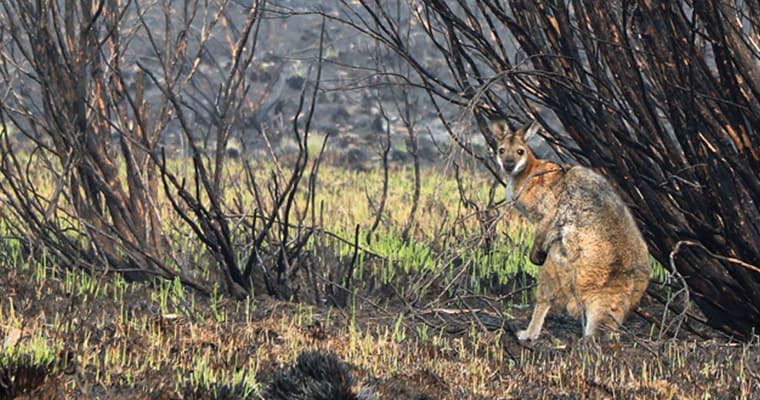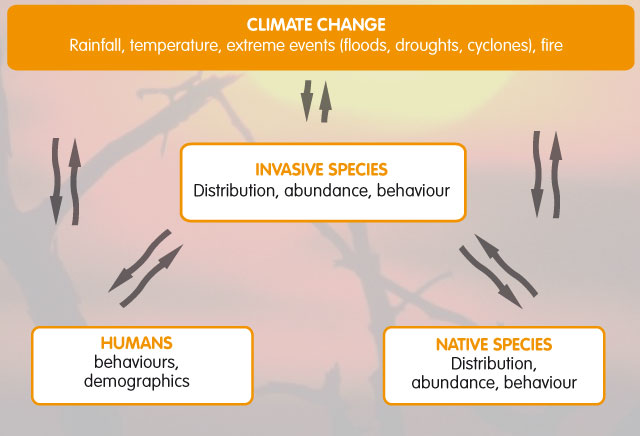As Federal Environment Minister Peter Garrett today launches a guide to tackle the spread of one of Australia’s most destructive weeds along New South Wales’ coastline the Invasive Species Council has warned that weed problems will get much worse under climate change.
Mr Garrett is launching a new Bitou Bush Management Manual at La Parouse, on Sydney’s south-eastern coastline today.
“Bitou bush already threatens dozens of rare coastal plants and vegetation communities, but under climate change this devastating and highly aggressive weed has the potential for much greater destruction,” ISC Project Officer Tim Low said today.
“Like many weeds bitou bush thrives in areas that have been disturbed. Climate change will bring more violent storms that will open up increased opportunities for this plant to spread.”
Bitou bush has invaded 80 per cent of the New South Wales coastline, on coastal dunes and in rainforests. It grows near the sea in places that are highly susceptible to cyclones, storms and tidal surges.
“This African weed invaded in the past when native vegetation was removed by bulldozers, and vegetation damage by violent weather events will further promote its spread,” Mr Low said.
“Global warming adds greater urgency to the need for better management of weeds like bitou bush and prevention of new weed problems. A warmer world is going to be a much weedier world.
“Other weeds likely to benefit from violent weather along Australia’s coastline include lantana, gloriosa lily, ice plant and myrtle-leaf milkwort.
“The Invasive Species Council welcomes the launch of the Bitou Bush Management Manual and is pleased to see the federal environment minister involved. It signals a federal focus that is much needed on our weed issues.
“There are many more weeds that will benefit from climatic change, and Australia is poorly prepared to respond to these threats.
“It costs a lot of money to manage weeds, with millions of dollars being spent every year. But with the problem about to get much worse, it is money well spent,” Mr Low concluded.
Background information
Bitou bush (Chrysanthemoides monilifera ssp. rotundata) is one of Australia’s 20 Weeds of National Significance. It is closely related to another serious weed, Boneseed (Chrysanthemoides monilifera ssp. monilifera), which invades more inland areas.
The NSW Bitou Bush Threat Abatement Plan identified 158 native plant species, three plant populations and 26 ecological communities at risk from bitou bush and boneseed invasions in New South Wales.








